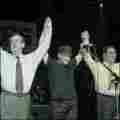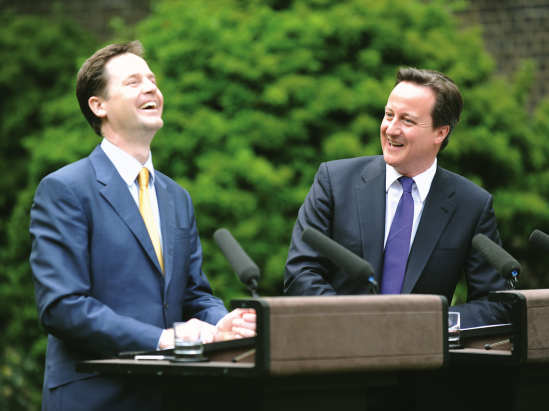A month into the official inquest into the ‘7/7’ London bombings of July 2005, it is clear that the governmental imperative to arrive at a clear, authoritative and final account of what happened on the day might prove impossible because of the unreliability of human memory. This was an event in which cameraphone footage from the scene was reaching the BBC within 20 minutes of the first of four explosions, and iconic images and memorial rituals were in place within days and weeks. Yet it took police four months to take witness statements and now five years for witnesses to testify in court. It is no wonder that discrepancies emerge. Not unlike 9/11, there are significant differences between sweeping media- and politically-driven narratives of national mourning and the local, particular perspectives of those involved.
An official record would offer some certainty to survivors, grieving relatives, and allow for objective assessment of how well emergency services performed. The inquest must be comprehensive and include as many voices as can offer salient information, it must be precise, and it must offer consensus and closure. At a symposium, ‘Conflicts of Memory’ at the University of Nottingham last week, my regular co-author Andrew Hoskins, who has been following the inquest, talked about the inconsistencies emerging between individuals’ testimonies and even within individuals’ own accounts. One ambulance worker said he had drawn a diagram of where bodies were in a carriage on the day of 7/7; he now can’t remember where he drew the diagram or even whether it was someone else who drew it for him.
We can see this for ourselves; witnesses’ transcripts and the evidence in court are available online, the kind of transparency our new media ecology makes so easy. For instance, we can compare witness testimonies with visual representations of what they had seen. Survivors must now try to reconcile what they thought had happened with all of the conflicting verbal and pictorial versions being put before the court now.
For Hoskins, it is only by following how, over a long period, events become stretched and extended through complex relations and layers of objects, people and rituals that we can see how consensual memories may be formed. This is not dissimilar to Latour’s argument that law (and science) are merely a set of mediations which enough people can agree to go along with for pragmatic reasons. The result, as with the 7/7 inquest so far, is imperfect. Would it be better for the inquest to settle on a definitive set of technical drawings and edit out inconsistent testimonies in order to reach an official record? This might upset survivors who feel the memory they genuinely hold, and which they have lived with for over five years, has been crossed out as a mistake.
Alternatively, the British state could allow for a loose plurality of often-ambiguous accounts to stand together. There would be costs. But with the testimonies, diagrams and other evidence archived and publicly available online, they could decide to turn it over to the public to make connections and draw conclusions themselves. Inclusive but never definitive: judgement 2.0?
 On 4 June 2009 US President Obama went to Cairo to make a speech to the Muslim world, where, among other things, he addressed the question of political reform and democracy in the Middle East. In February 2011 one Al-Jazeera columnist has associated the tumultuous changes in Egypt and Tunisia to the persuasive technique Inception, the film in which Leonardo DiCaprio tries to plant ideas in individuals’ minds by infiltrating their dreams. Larbi Sadiki writes, ‘A precedent has been set in Tunisia, and Egypt is on the move. Whilst the challenges are awesome, the seeds for planting democratic dreams have begun by the display of people's power in Tunisia.’
On 4 June 2009 US President Obama went to Cairo to make a speech to the Muslim world, where, among other things, he addressed the question of political reform and democracy in the Middle East. In February 2011 one Al-Jazeera columnist has associated the tumultuous changes in Egypt and Tunisia to the persuasive technique Inception, the film in which Leonardo DiCaprio tries to plant ideas in individuals’ minds by infiltrating their dreams. Larbi Sadiki writes, ‘A precedent has been set in Tunisia, and Egypt is on the move. Whilst the challenges are awesome, the seeds for planting democratic dreams have begun by the display of people's power in Tunisia.’ Did Obama successfully use the power of inception, or would the last few weeks’ changes have happened anyway? This raises the larger problem of explaining outcomes whose causes may be extremely long term and difficult to identify – political scientists still struggle to explain revolutions. Certainly, in the coming weeks, months and years it will be interesting to see whether US public diplomacy teams claim any credit for incepting change.
Did Obama successfully use the power of inception, or would the last few weeks’ changes have happened anyway? This raises the larger problem of explaining outcomes whose causes may be extremely long term and difficult to identify – political scientists still struggle to explain revolutions. Certainly, in the coming weeks, months and years it will be interesting to see whether US public diplomacy teams claim any credit for incepting change.

